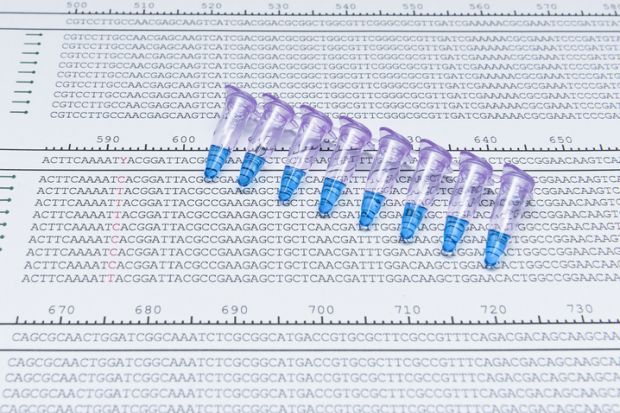Leaders of US and Asian scientific academies are calling for the development of new global guidelines governing genome editing in human embryos, and for the creation of a whistleblowing “hotline”, after a Chinese scientist claimed to have created the world’s first genetically edited babies.
The presidents of the US National Academy of Medicine, the US National Academy of Sciences and the Chinese Academy of Sciences say that the He Jiankui case “highlights the urgent need to accelerate efforts to reach international agreement upon more specific criteria and standards that have to be met before human germline editing would be deemed permissible”.
Dr He, an associate professor at the Southern University of Science and Technology, is reportedly under house arrest at his Shenzhen campus after claiming to have used a gene editing technology known as CRISPR-Cas9, which is banned in most countries, to alter the embryonic genes of twin girls born last month. Dr He, who said that gene editing would help to protect the babies from HIV infection, was on leave from his university and did not tell his employers of his work.
Writing in Science, Victor Dzau, Marcia McNutt and Chunli Bai say that, to maintain public trust that genome editing may one day be able to treat or prevent disease, “the research community needs to take steps now to demonstrate that this new tool can be applied with competence, integrity, and benevolence”.
“Unfortunately, it appears that the case presented [at a conference] in Hong Kong might have failed on all counts, risking human lives as well as rash or hasty political reaction,” they say.
The trio call on international experts to produce an “expedited” report to inform new criteria and standards which all genome editing in human embryos for reproductive purposes must confirm with, adding that the US national academies were prepared to lead this effort.
“We strongly believe that international consensus on such standards is important to avoid the potential for researchers to rationalise the justification or seek out convenient locales for conducting dangerous and unethical experimentation,” they write. “The establishment of international scientific standards is not intended to substitute for national regulation but could inform such regulation.”
The academy presidents add that researchers also need “an international mechanism that would enable scientists to raise concerns about cases of research that are not conforming to the accepted principles or standards”.
They say that an already-proposed international forum on human genome editing “could provide such a mechanism, along with other important functions such as helping to speed the development of regulatory science, providing a clearinghouse for information about governance options, contributing to the long-term development of common regulatory standards, and enhancing coordination of research and clinical applications through an international registry of planned and ongoing experiments”.
Register to continue
Why register?
- Registration is free and only takes a moment
- Once registered, you can read 3 articles a month
- Sign up for our newsletter
Subscribe
Or subscribe for unlimited access to:
- Unlimited access to news, views, insights & reviews
- Digital editions
- Digital access to THE’s university and college rankings analysis
Already registered or a current subscriber? Login








